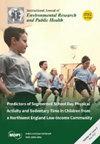Using Association Rules to Obtain Sets of Prevalent Symptoms Throughout the COVID-19 Pandemic: An Analysis of Similarities Between Cases of COVID-19 and Unspecified SARS in São Paulo-Brazil
3区 综合性期刊
Q1 Medicine
International Journal of Environmental Research and Public Health
Pub Date : 2024-09-01
DOI:10.3390/ijerph21091164
引用次数: 0
Abstract
The efficient recognition of symptoms in viral infections holds promise for swift and precise diagnosis, thus mitigating health implications and the potential recurrence of infections. COVID-19 presents unique challenges due to various factors influencing diagnosis, especially regarding disease symptoms that closely resemble those of other viral diseases, including other strains of SARS, thus impacting the identification of useful and meaningful symptom patterns as they emerge in infections. Therefore, this study proposes an association rule mining approach, utilising the Apriori algorithm to analyse the similarities between individuals with confirmed SARS-CoV-2 diagnosis and those with unspecified SARS diagnosis. The objective is to investigate, through symptom rules, the presence of COVID-19 patterns among individuals initially not diagnosed with the disease. Experiments were conducted using cases from Brazilian SARS datasets for São Paulo State. Initially, reporting percentage similarities of symptoms in both groups were analysed. Subsequently, the top ten rules from each group were compared. Finally, a search for the top five most frequently occurring positive rules among the unspecified ones, and vice versa, was conducted to identify identical rules, with a particular focus on the presence of positive rules among the rules of individuals initially diagnosed with unspecified SARS.利用关联规则获取整个 COVID-19 大流行期间的流行症状集:巴西圣保罗 COVID-19 和不明 SARS 病例的相似性分析
对病毒感染症状的有效识别为迅速而准确的诊断带来了希望,从而减轻了对健康的影响和感染复发的可能性。由于影响诊断的各种因素,COVID-19 带来了独特的挑战,尤其是疾病症状与其他病毒性疾病(包括 SARS 的其他毒株)的症状非常相似,从而影响了对感染中出现的有用且有意义的症状模式的识别。因此,本研究提出了一种关联规则挖掘方法,利用 Apriori 算法来分析确诊为 SARS-CoV-2 的患者与确诊为非典型肺炎的患者之间的相似性。其目的是通过症状规则,研究最初未被确诊为该疾病的个体中是否存在 COVID-19 模式。实验使用了巴西圣保罗州 SARS 数据集中的病例。首先,分析了两组病例中症状相似度的百分比。随后,对每组的前十条规则进行比较。最后,在未指定 SARS 病例中搜索出现频率最高的前五条阳性规则,反之亦然,以找出相同的规则,特别是在最初诊断为未指定 SARS 的病例的规则中是否存在阳性规则。
本文章由计算机程序翻译,如有差异,请以英文原文为准。
求助全文
约1分钟内获得全文
求助全文
来源期刊

International Journal of Environmental Research and Public Health
Medicine-Public Health, Environmental and Occupational Health
CiteScore
7.30
自引率
0.00%
发文量
14422
审稿时长
1 months
期刊介绍:
International Journal of Environmental Research and Public Health (IJERPH) (ISSN 1660-4601) is a peer-reviewed scientific journal that publishes original articles, critical reviews, research notes, and short communications in the interdisciplinary area of environmental health sciences and public health. It links several scientific disciplines including biology, biochemistry, biotechnology, cellular and molecular biology, chemistry, computer science, ecology, engineering, epidemiology, genetics, immunology, microbiology, oncology, pathology, pharmacology, and toxicology, in an integrated fashion, to address critical issues related to environmental quality and public health. Therefore, IJERPH focuses on the publication of scientific and technical information on the impacts of natural phenomena and anthropogenic factors on the quality of our environment, the interrelationships between environmental health and the quality of life, as well as the socio-cultural, political, economic, and legal considerations related to environmental stewardship and public health.
The 2018 IJERPH Outstanding Reviewer Award has been launched! This award acknowledge those who have generously dedicated their time to review manuscripts submitted to IJERPH. See full details at http://www.mdpi.com/journal/ijerph/awards.
 求助内容:
求助内容: 应助结果提醒方式:
应助结果提醒方式:


